I Had Too Many Restless Nights—Until I Did This
All I wanted was seven solid hours of sleep. And I actually got it.
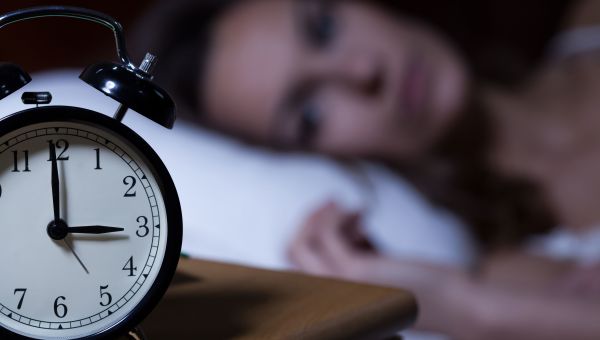
Some people fall asleep the minute their head hits their pillow. Others can sleep just about anywhere, from sitting up in an uncomfortable plane seat, to lying on the couch with the TV blaring. I’m neither of those people.
And while I’m not an insomniac—defined as someone who has difficulty falling or staying asleep—there are times when dozing off can be a struggle.
According to the National Sleep Foundation (NSF), about one in three adults have at least mild insomnia at some point in their lives. It can be acute—meaning you don’t sleep well for a brief period of time, usually because of a life event—or chronic, which is a long-term pattern of sleep trouble.
Given that I’m a writer who works a great deal on health copy, it wasn’t lost on me that sleep loss could take a toll on my health. Decades of research have shown that chronic sleep loss puts you at risk of health problems including cardiovascular disease, diabetes and obesity.
So, I challenged myself to sleep seven hours per night for 30 consecutive days. Here are some of the things I tried—and if you have trouble sleeping, maybe they’ll help you, too.
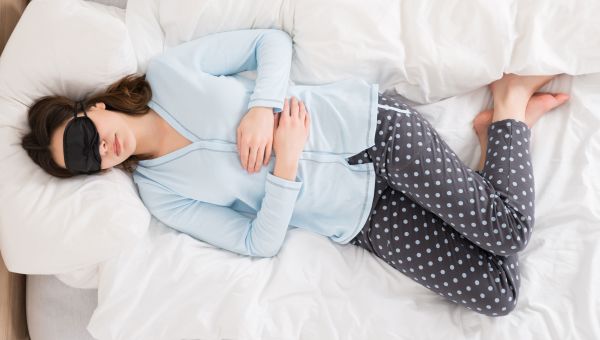
Embrace sleep hygiene
According to the NSF, the average adult needs seven to nine hours of nightly rest—and I knew from experience that seven is my sweet spot.
But I needed some guidelines to get started (beyond “go to bed earlier”). The NSF has a list of sleep hygiene practices geared to help you fall asleep and get quality rest, including:
- Avoiding stimulants like caffeine close to bedtime.
- Skipping foods before bedtime that disrupt sleep. That means foods that are heavy, spicy, fatty and fried, since they can cause indigestion and heartburn.
- Having a relaxing routine before bed.
- Exercising, but avoiding strenuous exercise too close to bedtime if it keeps you up.
- Creating a comfortable sleep environment. This means a comfy bed and pillows, soft lighting and a temperature between 60 and 67 degrees. Light from the TV, phone and computer make it harder to snooze.

Become accountable
Before taking the leap into bed, I decided to track my sleep. I’ve successfully used food trackers in the past for weight loss, so why not try it for sleep? I used Sharecare, a free app for my smartphone (available for iOS and Android). It tracks a lot of health factors, including sleep, diet and fitness. But one nifty feature I really liked was a stress analyzer. You speak into your phone for a few seconds, and the app analyzes your stress level, based on the sound of your voice. This feature became helpful and instructive on my journey to dreamland.

Sweat off stress
Stress and anxiety are major sleep robbers. When the app kept registering my stress level as “intense,” I knew I had to find ways to calm down. My first focus would be to get more exercise. Fortunately, I actually love to exercise. It’s a great way to de-stress and get tired naturally. It was just finding the time and motivation to do it.
My main form of cardio exercise is swimming, and I do physical therapy strength-training exercises at home. It’s not easy to get to my gym (which has a pool), given my work schedule and commute. Besides, who doesn’t want to plop down on the couch at the end of a long day?
My other excuse was that my laptop bag—a rolling bag—wouldn’t fit into the locker along with my other things. Then, on weekends, it was easy for the day to slip by, between errands, housework and socializing with friends.
But something had to give. I vowed to get to the gym at least once during the workweek. To get around the locker room dilemma, I bought a second lock and used two lockers. I also stuffed my swimsuit into my laptop bag and went straight to the gym after work. By taking the decision-making out of the process (once I got home it was game over) there was no reason to skip the gym.
On weekends, I simply prioritized swimming. While the whole process of getting to the gym, changing clothes and taking a shower seemed time-consuming, the payoff was worth it; after a 30-minute water workout, I felt great. The most telling? My stress level registered as “calm” after a dip in the pool. Plus, I slept much better after a daytime workout.
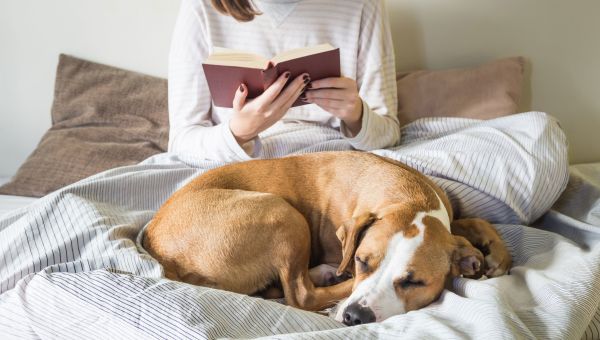
Set a sleep environment
One major sleep hygiene tip is to power down your electronics at least an hour before bed. That’s because the light emitted from them can interfere with the production of melatonin, a hormone released into your blood starting at around 9 p.m. Melatonin makes you feel sleepy, but bright light inhibits its release—keeping you wide awake.
I had all kinds of lights on as the evening wore on, whether I was checking email, texting or shopping online for stuff I wasn’t even going to buy. But this was a real eye-opener (literally): I often watched news shows on TV, and I’d become so worked up that I was anything but relaxed.
Then, I made an amazing discovery: I gave up watching the shows for a few days, and couldn’t believe how much calmer I felt those evenings. I went to bed earlier and slept better when my mind wasn’t consumed by current events. Reading a book also helped put me in the mood for getting my beauty rest; I usually didn’t turn too many pages before it was lights out.
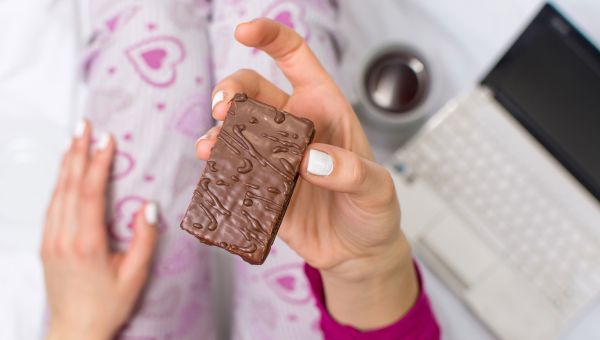
Stay away from the kitchen
I have a habit of nighttime noshing. It’s not fatty, fried foods—it’s chocolate. Chocolate and nonfat milk. Not only does this nightly habit add calories, but chocolate contains caffeine.
Willpower does play a role in this, so I just decided to eat less food. Giving up chocolate has been more of a struggle, but I’ve tried to stop buying it. On the days when I didn’t nosh, I was definitely sleepier and it helped me go to bed earlier since I was eliminating another activity. Another plus: Cutting down on nighttime snacking helped me to lose four pounds over the 30 days.
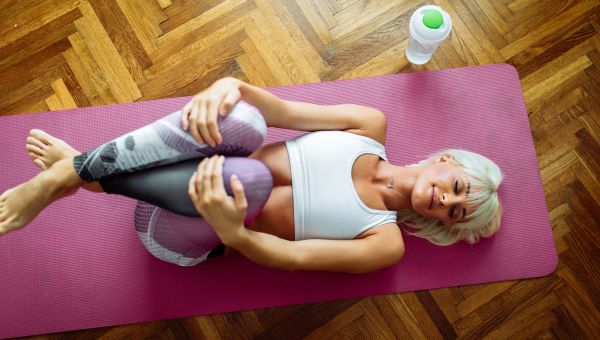
Do relaxation exercises
Current events aside, I find it difficult to stop thinking at night. I once asked a guy friend what he thought about when he went to bed at night, and he said… nothing. Wow! No wonder he didn’t toss and turn.
My next move was to shoot for mental emptiness, and that’s when I made another great discovery: stretching. One evening I was lying on my living room floor and started to do some leg stretches. The next thing I knew I was yawning.
Another good way to relax is through progressive muscle relaxation. To start, do a mental inventory of your body, starting at your toes and moving up to the top of your head, tensing and then relaxing each part of your body. I’ve found this super calming—and it works almost every time. I do it in bed, so I’m right where I need to be to doze off.
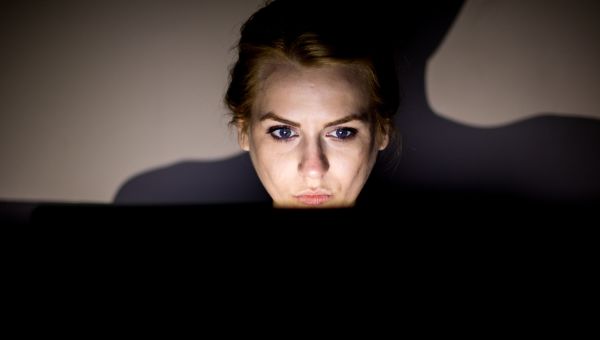
Accept that change is hard
Sticking to the challenge was difficult. There were times I did my sleep hygiene things and got into bed, and . . . nothing. At those moments, I would sometimes bag it, get up and do something productive, like catch up on work. Other times, I aimlessly surfed the Internet, reading or looking at lovely images on Instagram.
Some of my strategies had a bit of a downside, too. For instance, when I skipped the news I felt calmer, but also a bit uninformed.
All in all, as much as I wanted to succeed, I think it was unrealistic to think I’d sleep for seven hours every single night—sometimes I slept more, sometimes less. And that’s when I had another realization.
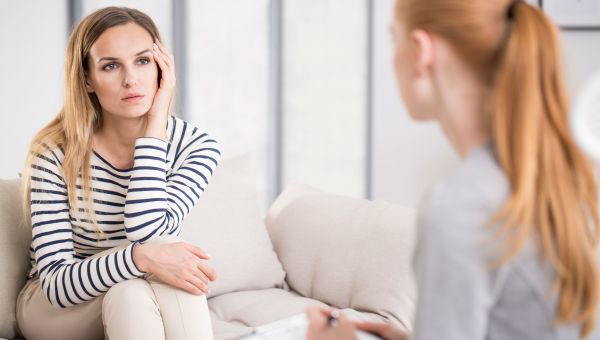
Calm down, for real
There can be a psychological component to letting yourself relax enough to sleep. And I realized that along with my usual anxiety, I worried about whether I would be able to sleep. I had anxiety on top of anxiety.
Even though I was taking steps to alleviate stress, ultimately it wasn’t enough. I had to look at my life as a whole, and reduce anxiety in all areas, not just for sleep.
Over the course of 30 days, I did discover some things that helped me get to sleep faster. I’ll continue to:
- Prioritize exercise, which helps ease chronic back pain and tires me out, making it easier to sleep.
- Try to cut down on screen time. I’m actually considering ordering a newspaper subscription. I can always catch up on what I missed the next morning online.
- Do stretches at night. Alternate that with the muscle relaxation exercise and 15 minutes of meditation, which I also find calming.
- Avoid nighttime eating, and cut out chocolate as much as possible.
All the material I’ve read about sleep says that for your best rest you have to have structure. That is, go to bed and wake up at the same time, including on weekends. My wake and sleep times still tend to fluctuate—but I’ll continue to give it a try.
For those with serious sleep problems there is Cognitive Behavioral Therapy for Insomnia (CBT-I)—a specific type of therapy known to be effective for people who don’t doze off easily. The main focus is to help people control or get rid of negative thoughts that keep them awake. In fact, there’s one strategy called paradoxical intention. The idea is to let go of worrying about sleeping so that you can sleep. This may sound simple, but it’s not easy for us nocturnal worrywarts.
It sounds promising. If the problem continues, I may give therapy a try. The cost could be well worth it for anyone striving to get more shut-eye while the rest of the world is snoozing away.
More On


video
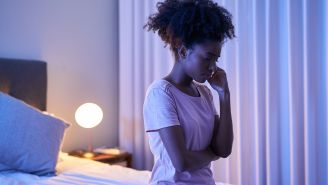
article
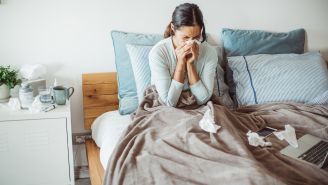
slideshow


video


video
